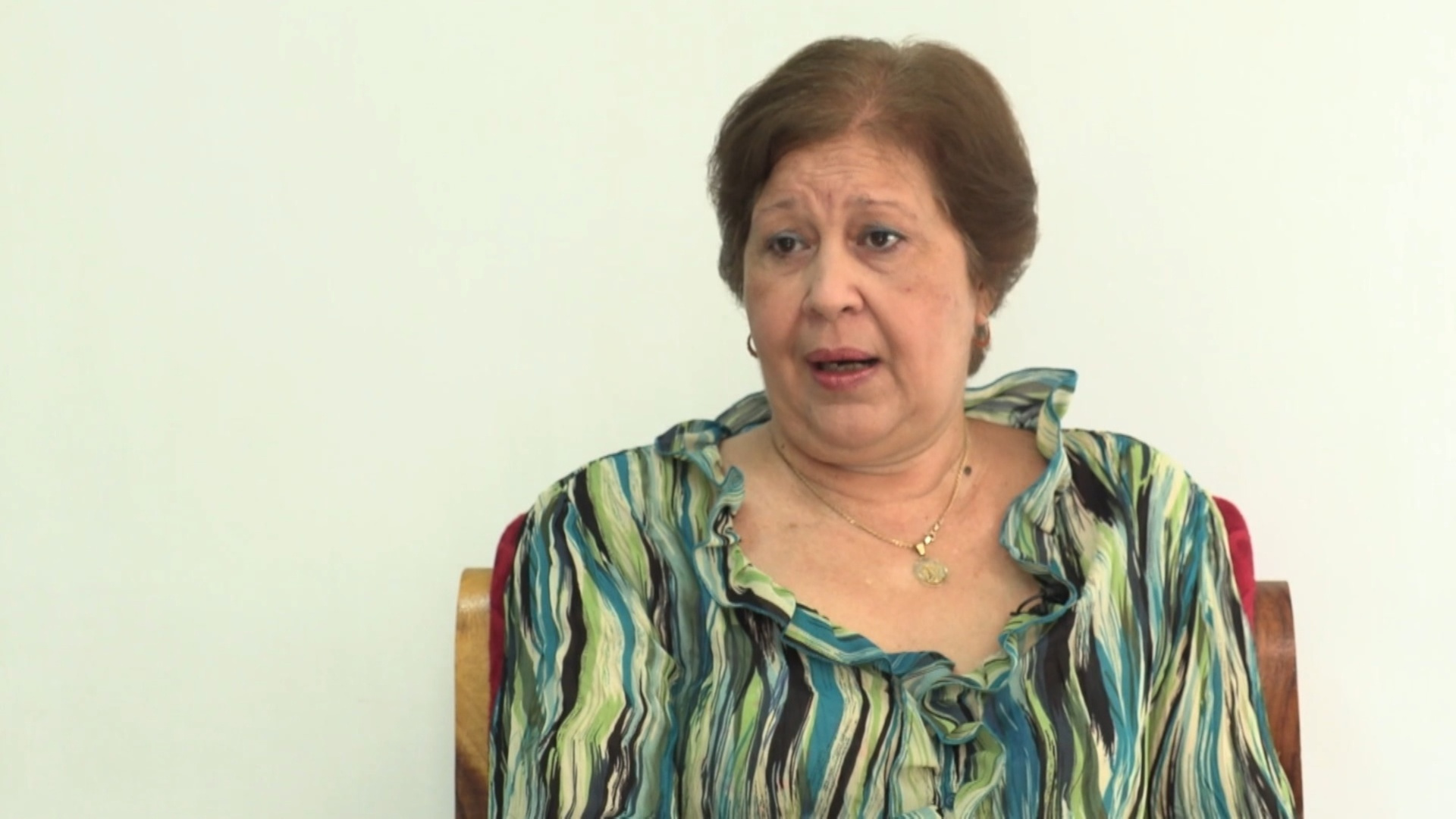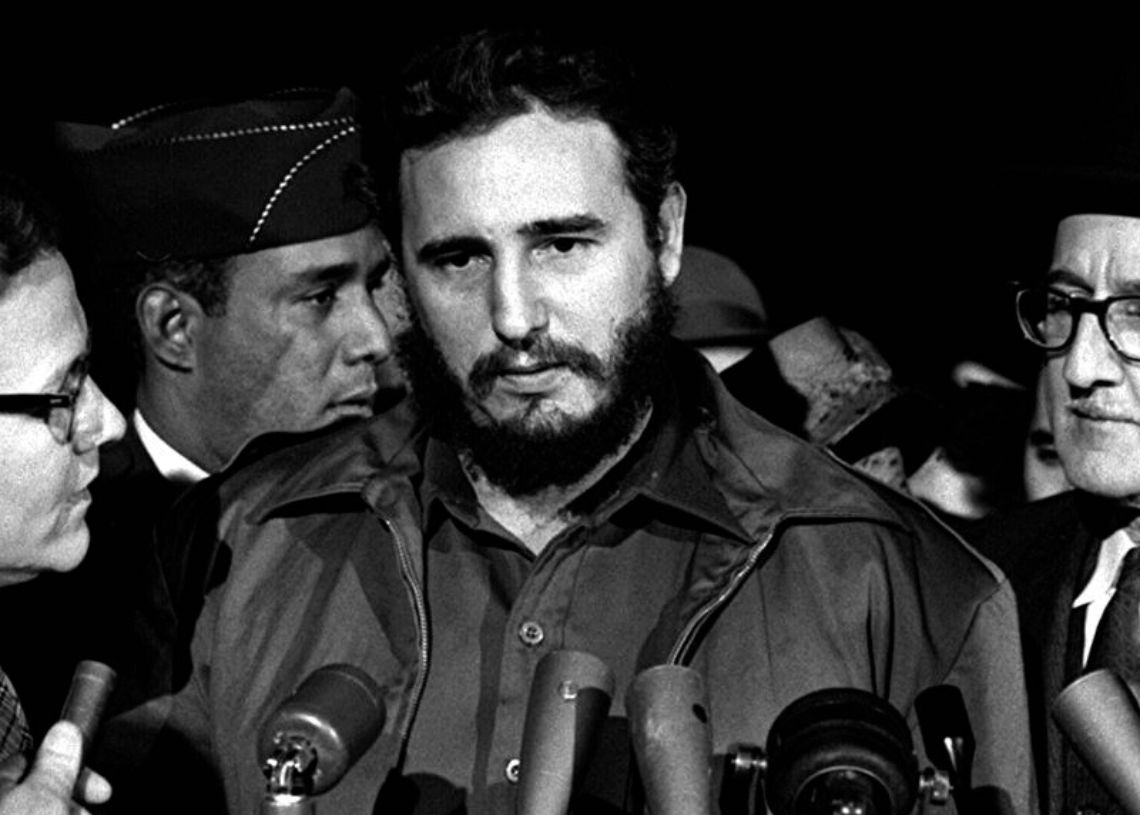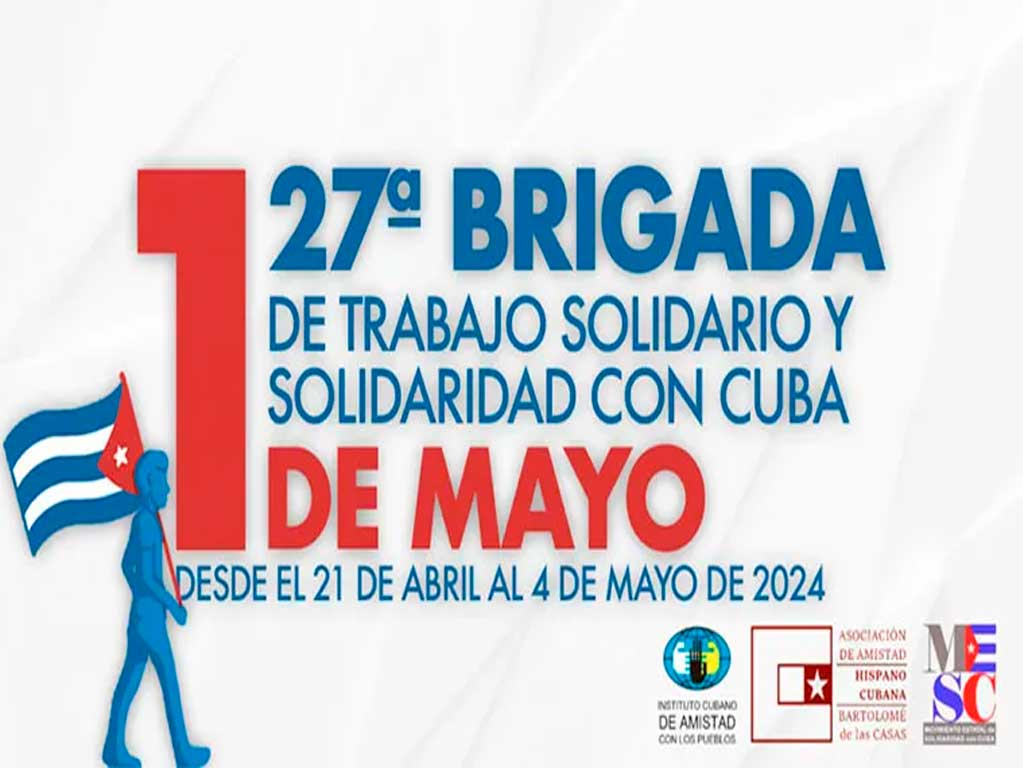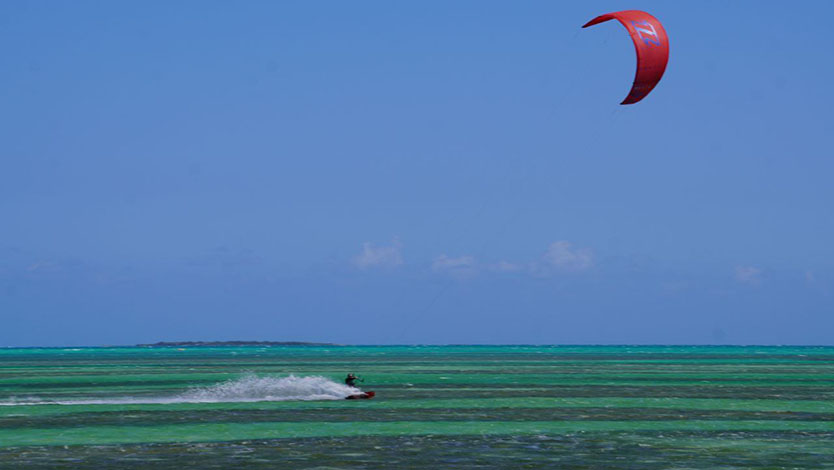The men who sat down for dinner at the Hotel Bodenmais in West Germany on 23 June 1976 were exclusively white, although the issue to be discussed was the path to majority black rule in Rhodesia. At the table was John Vorster, prime minister of apartheid South Africa. With him were ambassadors, diplomats and security officials. Pride of place, however, was reserved for the US secretary of state, Henry Kissinger, who opened the proceedings with a racially tinged joke.
It was a dinner that took place in the midst of a frantic two-year period when the world’s most high-profile diplomat – who had dismissively ignored Africa for much of his time in office in the Nixon and Ford administrations – was taken with a sudden interest in the continent.
Then, armed with a dangerous cold war logic, he applied himself to successive crises in Ethiopia, Angola and Rhodesia in the search of a quick fix to burnish a reputation that was beginning to be eclipsed.
As Kissinger turns 100 on 27 May, his interventions in Africa have once again come under the spotlight, not only for the multiple failures that emerged from an approach befogged by deception, secrecy and browbeating, but for the long-lasting and dangerous consequences of his efforts in southern Africa in particular.

In the space of a handful of years Kissinger would be involved in a murky intervention in Angola that would complicate the emerging conflict there that followed Portugal’s withdrawal after a coup in Lisbon.
He became the first US secretary of state to visit South Africa in three decades, delivering prestige to the apartheid regime in the aftermath of the Soweto massacre in 1976, when scores of demonstrating schoolchildren and others were gunned down by police.
And while he would strong-arm Rhodesia’s pariah prime minister, Ian Smith, into making a declaration that he would accept majority black rule, it would be a failed initiative undertaken in questionable faith and underpinned by his own sympathies for the white-minority communities who were ruling Rhodesia and South Africa with racist policies.
The consequences, as historians point out, were a hugely prolonged war in Angola and an added lease of life for apartheid.
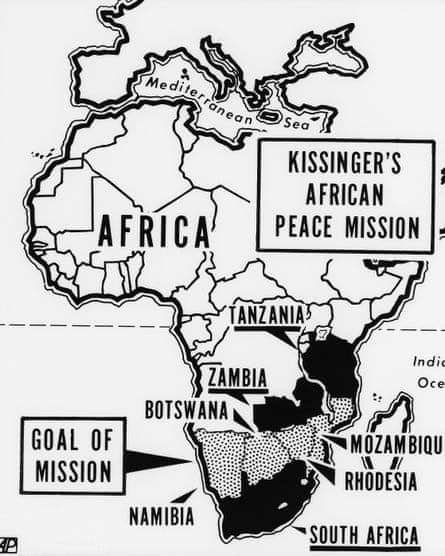
In a scathing memoir, written for American Diplomacy in 2010, the former US ambassador to Nigeria, Donald Easum, who served as the assistant secretary of state for African affairs, delivered a withering assessment of Kissinger, describing African ambassadors and representatives at the UN as “routinely rebuffed and neglected” by the secretary of state’s office, and his “disdain” for black Africa.
Kissinger would become engaged by events in Angola where, after a leftwing military coup in 1974 against Lisbon’s Estado Novo dictatorship, the new regime immediately stopped all military action in the African colony, leading to independence in 1975.
Concerned that the Marxist-Leninist People’s Movement for the Liberation of Angola (MPLA) – one of the combatants in the civil war that followed the coup – would sweep to power, opening the way for Soviet influence, Kissinger moved to engage with Africa.
In his memoir, Easum summarised Kissinger’s ambition: “He was determined to seize in Angola what he considered a timely opportunity to display America’s (and Henry Kissinger’s) strength.
“He believed that defeating the MPLA, which he considered pro-Soviet, could expunge the image of a flabby United States in retreat after Vietnam. Moreover, he thought he could do it on the cheap with clandestine CIA collaboration. He was soon to be proved dead wrong.”
If Angola was important – not least after the Cuban intervention to support the MPLA after South Africa invaded and its forces drove almost to the capital, Luanda – it was because Kissinger believed that should Angola fall, neighbouring states could follow, including Rhodesia, ultimately threatening South Africa.
“He had a reputation for being a strategic genius,” says Nancy Mitchell, a historian and author of Jimmy Carter in Africa: Race and the Cold War.
“But if you study what Kissinger did in Angola and Rhodesia, it really sheds a light on the weakness of his entire policy in Africa but also in the Middle East and Vietnam. He misread the situation in Angola from the start. He never expected the Cubans to intervene.”
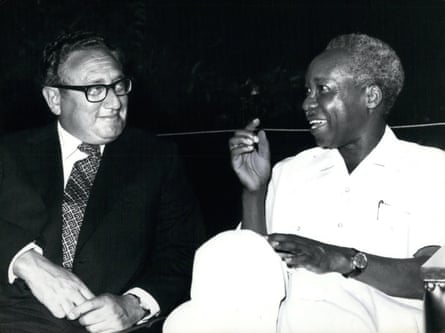
Echoing Easum, Mitchell sees the period of Kissinger’s diplomacy in Africa as “very sordid” and damaging, not least his whirlwind tour of African leaders in 1976 – which saw him fleetingly meet Tanzania’s Julius Nyerere and Zambia’s Kenneth Kaunda among others – leaving behind a legacy of distrust.
“He really dismissed the whole continent of Africa until he thought he could get a reputational gain by intervening in Angola and saving it for American influence.
“He didn’t study Africa. He went in with a very typical racism of the time, a contempt for all developing countries, and thought he could get an easy victory, which he needed after the collapse of South Vietnam,” said Mitchell.
“He even said it about himself when he quipped to a British Foreign Office official that it was a mixture of extreme arrogance and naivety.”
after newsletter promotion
As Mitchell points out, while Kissinger spent hours in talks with Rhodesia’s and South Africa’s white leaders, on his whistlestop tour of black leaders he either failed to meet key players, such as Samora Mac




